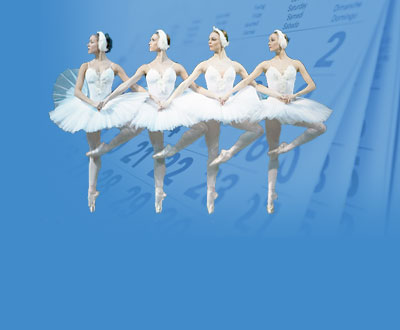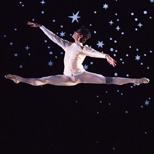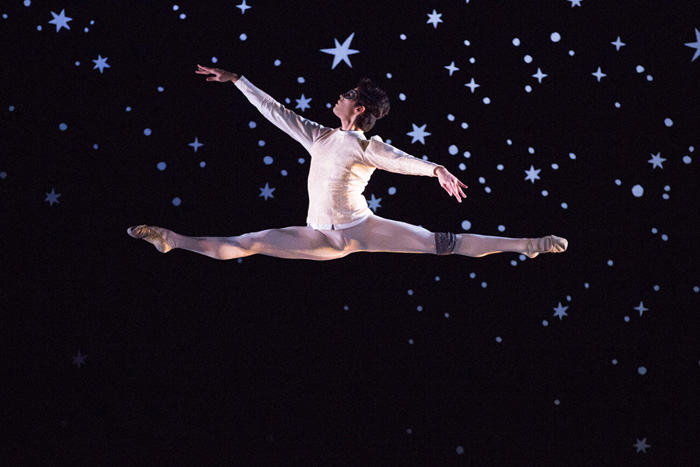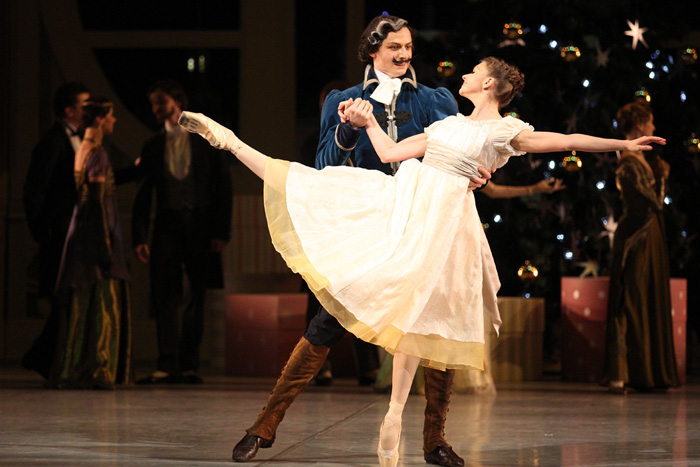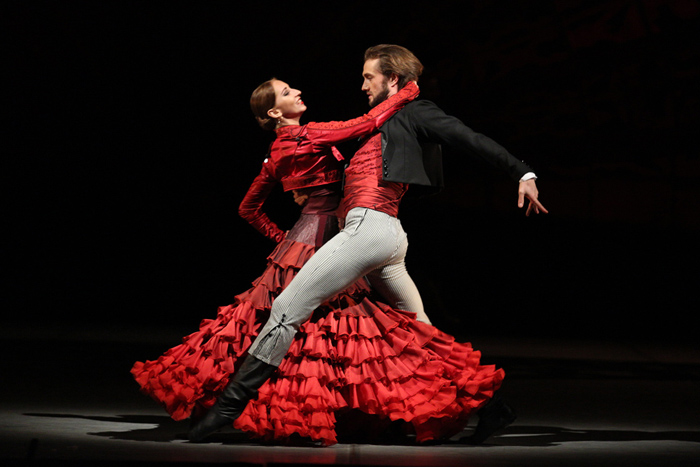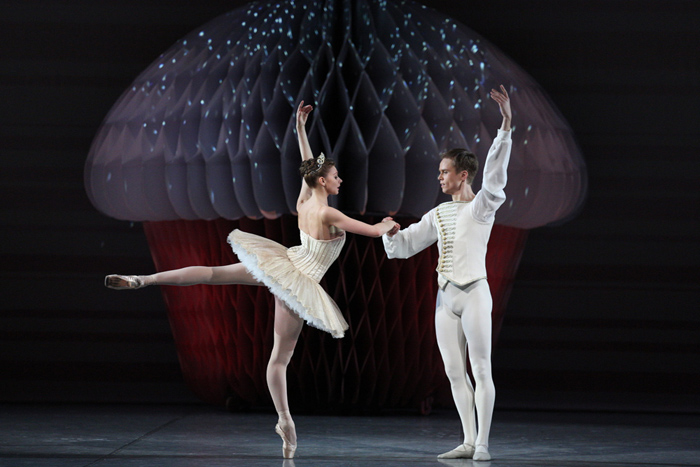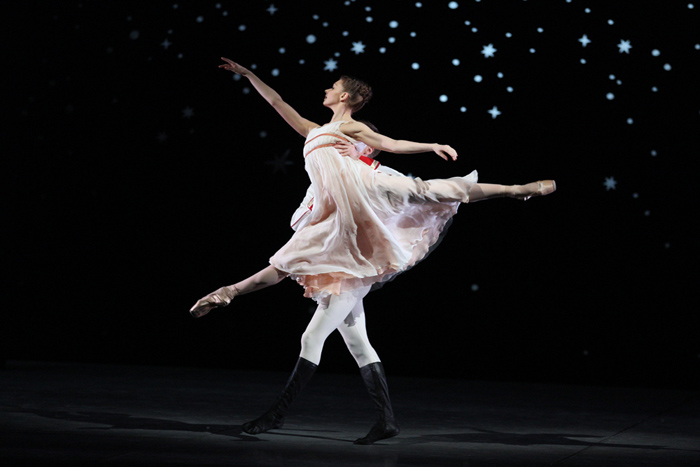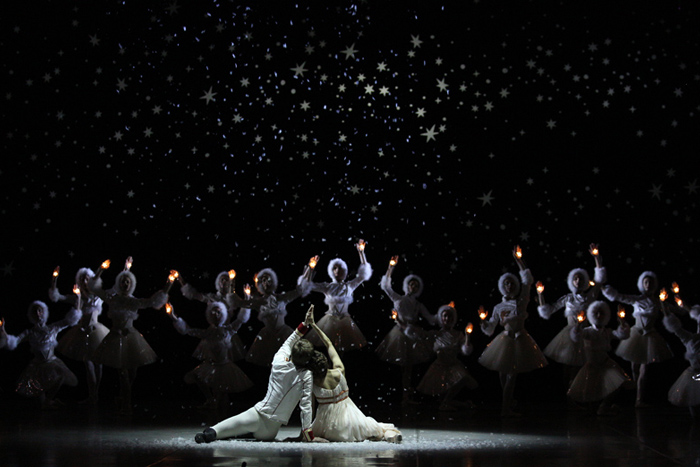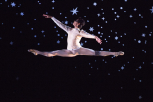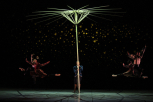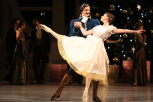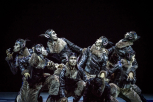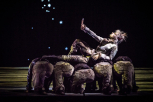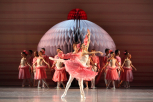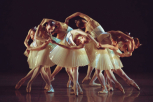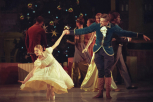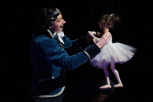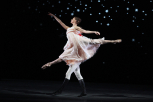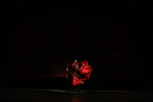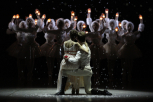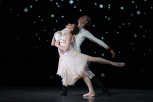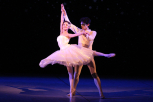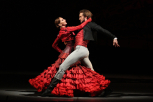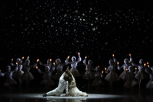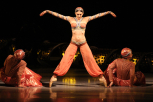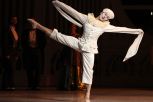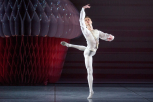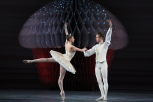Schedule of all St. Petersburg theaters on
one page >>
Please enter theatre's name, actor's name or any other keyword
The Nutcracker (Mikhailovsky Theatre, ballet) - 28 February 2026 at 13:00
Mikhailovsky (ex. Mussorgsky) Theatre More info | Price: 221.74 - 430.43 USD
Genre: Ballet Age restriction: 6+ Length: 2 hours Intermissions: 1 Opening night: 12 December 2013
Featured in: The Nutcracker ballet in St.Petersburg | The Nutcracker ballet in St.Petersburg in May 2024
Credits
Choreographer: Nacho Duato
Musical Director and Conductor: Pavel Bubelnikov
Musical Director’s Assistant: Alexey Nyaga
Stage Designer: Jérôme Kaplan
Lighting Design: Brad Fields
Choreographer’s Assistants: Tony Fabre, Gentian Doda
Artists
Conductor — Mikhail Tatarnikov
Premiere of the production: December 12, 2013
Nacho Duato has given ballet lovers a new production of The Nutcracker by Pyotr Tchaikovsky. The most ‘Christmassy’ of all classical ballets,The Nutcracker has become a symbol of magical transformation and the constant renewal of life. It tells the tale of time’s passing and how a carefree childhood comes to be replaced by the bright sorrow of youth and the dreams of unattainable harmony. Renowned French stage designer Jérôme Kaplan will also work on the choreography. The scenery and costumes are completely in keeping with classical tradition, but are also full of subtle humour.
Below is a synopsis based on the original 1892 libretto by Marius Petipa. The story varies from production to production, though most follow the basic outline. The names of the characters also vary. In the original E.T.A. Hoffmann story, the young heroine is called Marie Stahlbaum and Clara (Klärchen) is her doll's name. In the adaptation by Dumas on which Petipa based his libretto, her name is Marie Silberhaus. In still other productions, such as Baryshnikov's, Clara is Clara Stahlbaum rather than Clara Silberhaus.
Act I
Scene 1: The Stahlbaum Home
It is Christmas Eve. Family and friends have gathered in the parlor to decorate the beautiful Christmas tree in preparation for the night's festivities. Once the tree is finished, the children are sent for. They stand in awe of the tree sparkling with candles and decorations.
The festivities begin. A march is played. Presents are given out to the children. Suddenly, as the owl-topped grandmother clock strikes eight, a mysterious figure enters the room. It is Drosselmeyer, a local councilman, magician, and Clara's godfather. He is also a talented toymaker who has brought with him gifts for the children, including four lifelike dolls who dance to the delight of all. He then has them put away for safekeeping.
Clara and Fritz are sad to see the dolls being taken away, but Drosselmeyer has yet another toy for them: a wooden nutcracker carved in the shape of a little man, used for cracking nuts. The other children ignore it, but Clara immediately takes a liking to it. Fritz, however, purposely breaks it. Clara is heartbroken.
During the night, after everyone else has gone to bed, Clara returns to the parlor to check on her beloved nutcracker. As she reaches the little bed, the clock strikes midnight and she looks up to see Drosselmeyer perched atop it. Suddenly, mice begin to fill the room and the Christmas tree begins to grow to dizzying heights. The nutcracker also grows to life-size. Clara finds herself in the midst of a battle between an army of gingerbread soldiers and the mice, led by the Mouse King. The mice begin to eat the gingerbread soldiers.
The nutcracker appears to lead the gingerbread soldiers, who are joined by tin soldiers and dolls who serve as doctors to carry away the wounded. As the Mouse King advances on the still-wounded nutcracker, Clara throws her slipper at him, distracting him long enough for the nutcracker to stab him.
Scene 2: A Pine Forest
The mice retreat and the nutcracker is transformed into a handsome Prince. He leads Clara through the moonlit night to a pine forest in which the snowflakes dance around them, beckoning them on to his kingdom as the first act ends.
Act II
Scene 1: The Land of Sweets
Clara and the Prince travel to the beautiful Land of Sweets, ruled by the Sugar Plum Fairy in the Prince's place until his return. He recounts for her how he had been saved by Clara from the Mouse King and had been transformed back into a Prince.
In honor of the young heroine, a celebration of sweets from around the world is produced: chocolate from Spain, coffee from Arabia, and tea from China all dance for their amusement; candy canes from Russia; Danish shepherdesses perform on their flutes; Mother Ginger has her children, the Polichinelles, emerge from under her enormous skirt to dance; a string of beautiful flowers perform a waltz. To conclude the night, the Sugar Plum Fairy and her Cavalier perform a dance.
A final waltz is performed by all the sweets, after which Clara and the Prince are crowned rulers of the Land of Sweets.
In the original libretto, the ballet's apotheosis "represents a large beehive with flying bees, closely guarding their riches". Just like Swan Lake, there have been various alternative endings created in productions subsequent to the original.
The Nutcracker in other Theatres of St.Peterburg


 en
en es
es